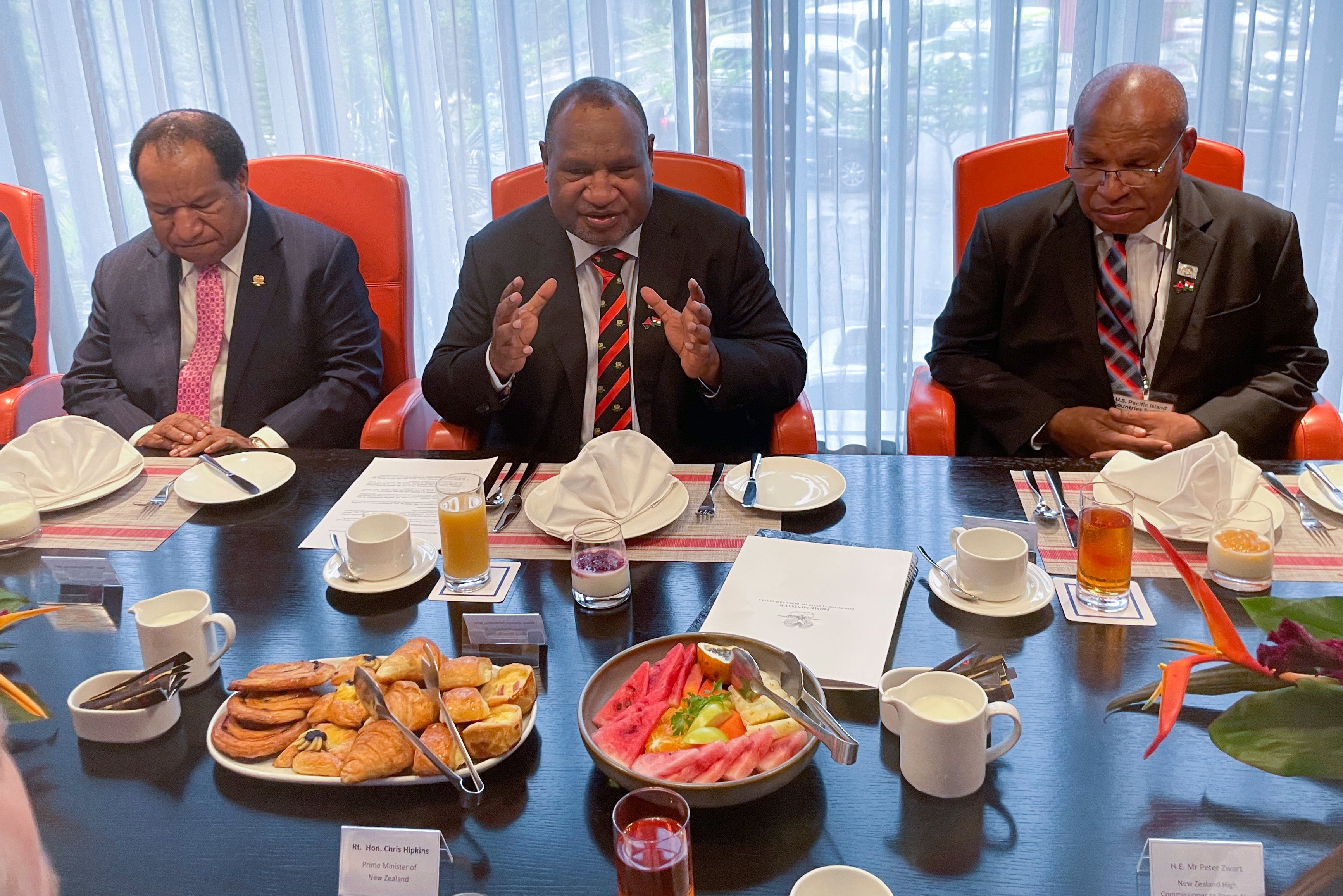US to sign new security pact with Papua New Guinea amid competition with China
The United States is scheduled to sign a new security pact with Papua New Guinea on Monday as the U.S. continues to jostle with China for influence in the Pacific

The United States is scheduled to sign a new security pact with Papua New Guinea on Monday as it continues to compete with China for influence in the Pacific.
Papua New Guinea's location just north of Australia makes it strategically significant. It was the site of fierce battles during World War II, and with a population of nearly 10 million people, it's the most populous Pacific Island nation.
The State Department said the new agreement would provide a framework to help improve security cooperation, enhance the capacity of Papua New Guinea's defense force and increase regional stability.
At a breakfast meeting on Monday, Papua New Guinea Prime Minister James Marape said his country faced significant security challenges, from skirmishes within the country to illegal fishing boats that lit up the night like skyscrapers.
“We have our internal security as well as our sovereignty security issues,” Marape said. “We're stepping up on that front to make sure our borders are secure.”
But the agreement sparked student protests in the second-largest city, Lae. And many in the Pacific are concerned about the increasing militarization of the region.
Last year, the nearby Solomon Islands signed its own security pact with China, a move that raised alarm throughout the Pacific. The U.S. has increased its focus on the Pacific, opening embassies in the Solomon Islands and Tonga, reviving Peace Corps volunteer efforts, and encouraging more business investment.
But some have questioned how reliable a partner the U.S. is in the Pacific, particularly after President Joe Biden canceled his plans to make an historic stop in Papua New Guinea to sign the pact. Biden would have become the first sitting U.S. president to visit any Pacific Island country, but he ended up canceling to focus on the debt limit talks back at home.
U.S. Secretary of State Antony Blinken traveled in Biden's place, arriving in Papua New Guinea early Monday. In response to news of Blinken's impending visit, China warned against the introduction of “geopolitical games" into the region.
The U.S. visit was timed to coincide with a trip by Indian Prime Minister Narendra Modi, who was hosting a meeting with Pacific Island leaders to discuss ways to better cooperate.
New Zealand Prime Minister Chris Hipkins, who met with Marape for breakfast was also due to meet with Blinken in Papua New Guinea, said he welcomed the greater U.S. interest in the region.
But he also drew a distinction to his own nation's efforts.
“We are not interested in the militarization of the Pacific,” Hipkins said. “We are interested in working with the Pacific on issues where we have mutual interest. Issues around climate change. And we’re not going to be attaching military strings to that support.”